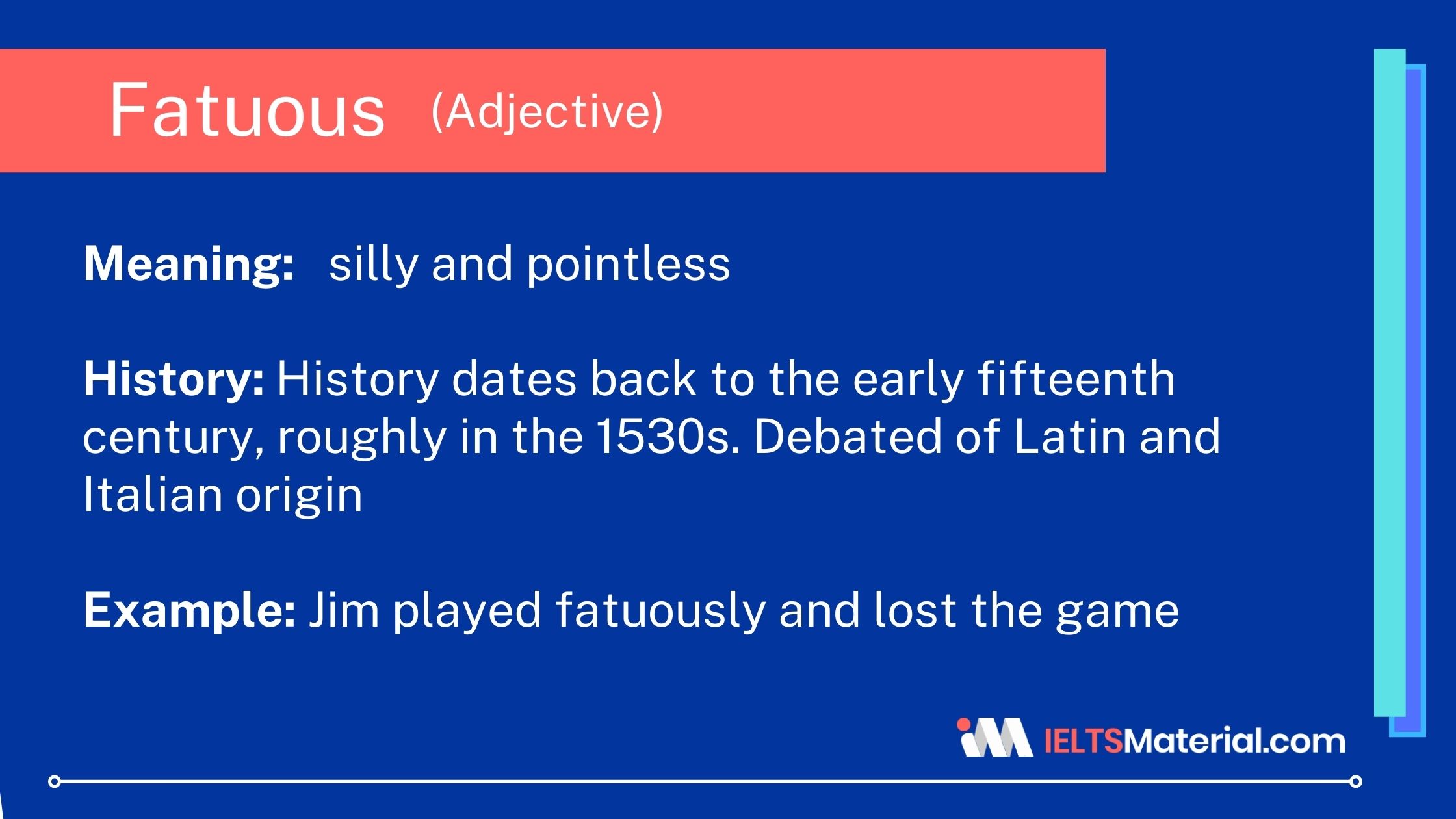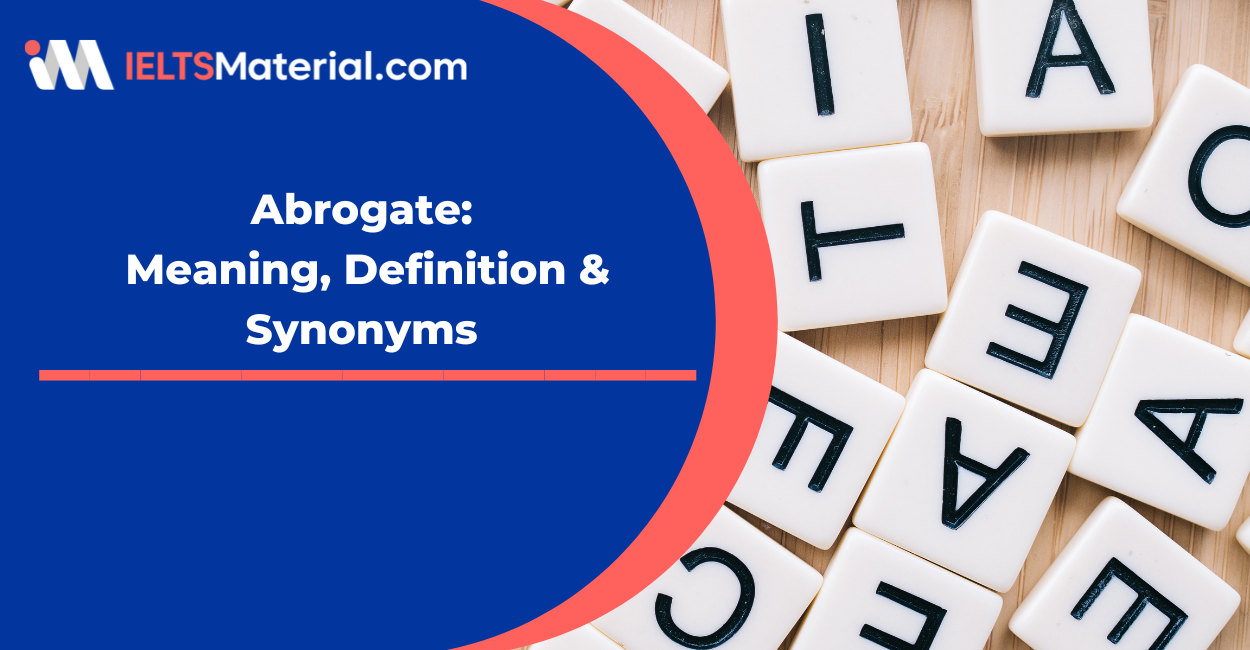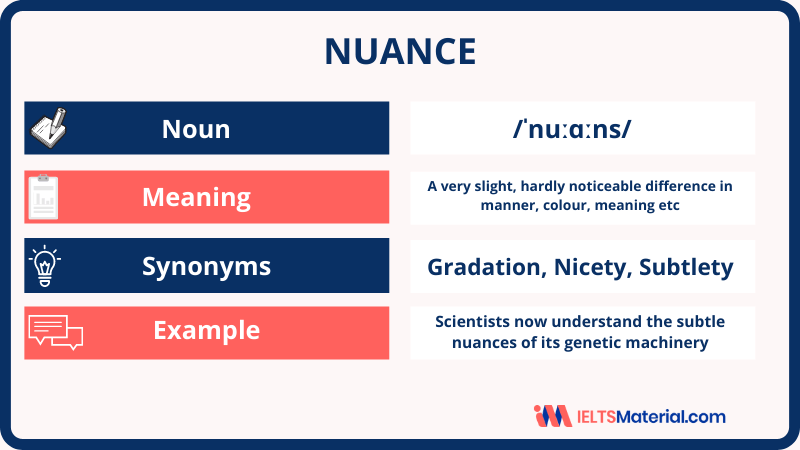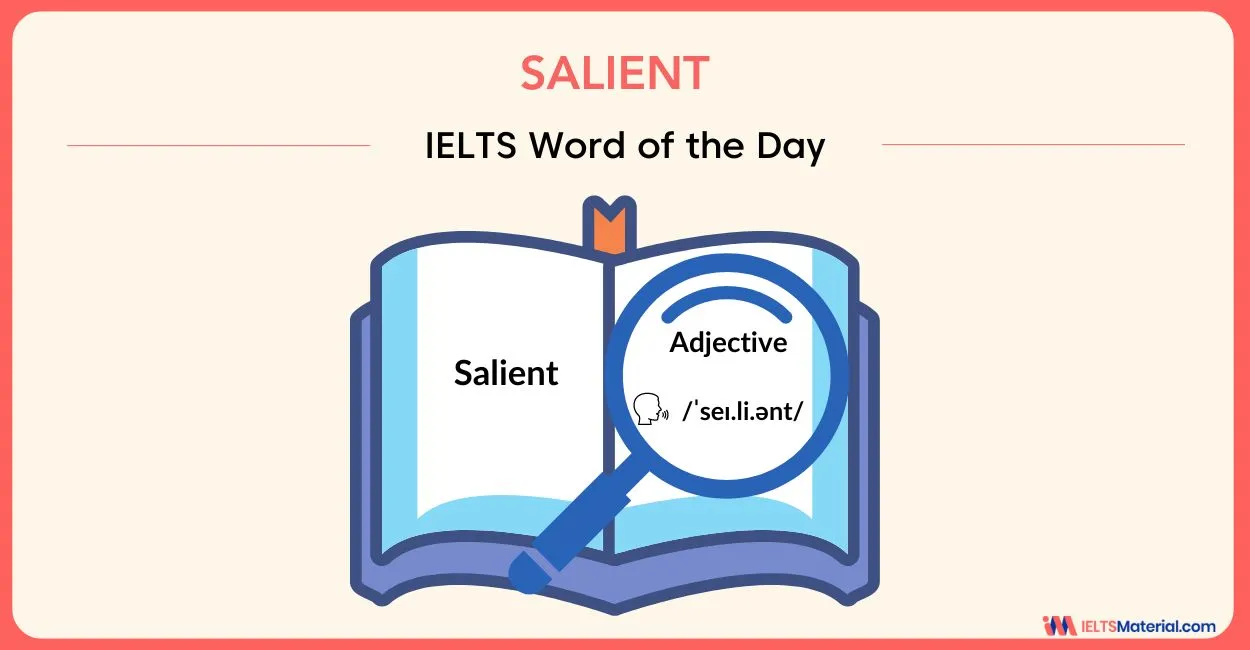Concomitant – Word of the Day for IELTS Speaking & Writing
3 min read
Updated On
-
Copy link
This blog explains the word Concomitant, meaning naturally accompanying or associated, as both an adjective and noun. It includes clear IELTS Speaking and Writing examples to help you describe related causes, effects, and consequences with confidence.
Table of Contents

Limited-Time Offer : Access a FREE 10-Day IELTS Study Plan!
Expanding your IELTS vocabulary with precise and formal words can greatly enhance your Lexical Resource score. Today’s word, “Concomitant,” is especially useful for describing things that naturally accompany or follow others in both IELTS Speaking and Writing tasks.
Meaning of “Concomitant”
Part of Speech:
- Adjective: Naturally accompanying or associated with something.
- Noun: A phenomenon or condition that naturally accompanies or follows another.
Origin and History of the Word
The word “concomitant” dates back to the early 1600s, originating from the Latin concomitantem meaning “accompanying,” derived from comitari meaning “to accompany.” It also passed through French influence before entering English usage.
How to Use “Concomitant” in IELTS Speaking & Writing
This word is highly effective when discussing causes and effects, consequences, or related factors in complex issues, commonly encountered in IELTS Writing Task 2 and Speaking Part 3.
1. Verb: Concomitate (rare, formal)
To accompany or be associated with something naturally.
- Sedentary lifestyle is concomitated with corporate life.
- Her melodious voice was concomitated by a guitar.
- The maid served the meal which concomitated by a dessert.
- He preferred to speak through the mic, even though it was concomitated by a buzzing sound.
- The judge chose to be fair even though it was concomitated by risks.
- Sita decided to take the pill despite knowing that it was concomitated with occasional drowsiness.
2. Adjective: Concomitant
Describes something that naturally comes along with another thing, often implying a cause-effect or side effect relationship.
- She loved trekking with all its concomitant risks.
- The party A merged with the party B even after knowing the concomitant loss of Sikh votes.
- The actor decided to experiment with the new role despite concomitant loss of fans.
- Jim decided to take the medicine, knowing the concomitant effects.
- The government encouraged buying of cars, in spite of concomitant increase in the carbon footprint.
- Ram decided against the marriage despite concomitant defamation.
3. Noun: Concomitant
Refers to a condition or phenomenon that accompanies another.
- 1Greying of hair is concomitant of ageing.
- Loss of appetite is a concomitant of this tablet.
- Cancer is a concomitant of smoking.
- We will analyse the causes, concomitants and consequences of this approach.
- The minister was reluctant to pass the bill considering the unpleasant concomitants.
- The speaker allowed him to talk, despite knowing the abusive concomitants.
IELTS Tip
Use “concomitant” in IELTS Writing Task 2 when explaining complex relationships, such as causes and effects, benefits and drawbacks, or risks and rewards. In IELTS Speaking Part 3, it can be used to discuss social, environmental, or economic issues with a formal tone. This word helps you present balanced arguments with precision and clarity.
Synonyms for Concomitant
- Accompanying
- Attendant
- Associated
- Related
- Concurrent
- Coincident
Grab the newly launched Vocabulary for IELTS to level up your preparation.
Sample IELTS Speaking Answer using “Concomitant”
Use in: IELTS Speaking Part 3 (Discussing causes and consequences)
Q: What are some negative effects of modern technology?
A: While modern technology has improved communication and convenience, it also has concomitant problems such as reduced face-to-face interaction and increased privacy concerns.
Sample IELTS Writing Sentence using “Concomitant”
Use in: IELTS Writing Task 2 (Cause and Effect or Discussion Essay)
Economic development often brings concomitant environmental degradation, which governments must address through sustainable policies.
Want to master more high-band IELTS vocabulary for the IELTS exam? Book a Free Demo Class today!
Use “concomitant” in both IELTS Speaking and Writing to clearly explain natural associations, causes, or consequences. It is a sophisticated word that enhances your formal language use, helping you score higher in Lexical Resource. Practice using “concomitant” in various contexts to improve your fluency and expression.
If you're aiming for top IELTS Band Score, follow the IELTS Exam Preparation Tips for Band Score of 8+ to further enhance your vocabulary and overall test performance.
Also Check:
Explore IELTS Resources

Start Preparing for IELTS: Get Your 10-Day Study Plan Today!
Recent Articles

Kasturika Samanta

Kasturika Samanta

Kasturika Samanta





Post your Comments